25, 26 y 27 de Septiembre
Congress on Critical Pedagogies and Humanities
Congress on Critical Pedagogies and Humanities: International Congress: Subjectivities, Interculturality, and Social Transformation.
Inspired by Pope Francis’s call through the Global Compact on Education and in alignment with the Institutional Educational Project of Universidad CatĂłlica Luis AmigĂł, this Congress emerges as a space for encounter, dialogue, and reflection on the contemporary social, cultural, and educational challenges.
Organized by the Faculty of Education and Humanities, we bring together knowledge, experiences, and academic proposals that aim to strengthen critical thinking and holistic education, promoting a pedagogy committed to human dignity, social justice, interculturality, and peace.
This Congress builds on the legacy of the Amigonian Pedagogy Congress and the participation in Expo-Education 2024, expanding its reach to an international academic community interested in transforming social realities through innovative, interdisciplinary, and decolonial educational proposals.
Global Compact on Education and University Commitment
Pope Francis, through the Global Compact on Education, calls for global educational efforts focused on human dignity and wholeness. Universidad CatĂłlica Luis AmigĂł responds with the Latin American and Caribbean Congress on Critical Pedagogies and Humanitiesâa space to reflect on a university that is contextualized and committed to life.
Personas responsables de la organizaciĂłn y asesoramiento cientĂfico del congreso:OrganizaciĂłn y Asesoramiento CientĂfico
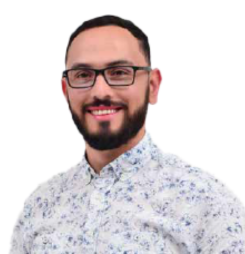
Carlos Mauricio Agudelo Gallego
Universidad CatĂłlica Luis AmigĂł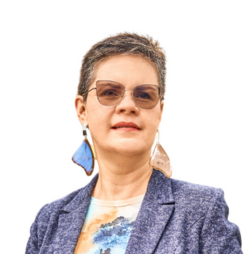
Alexandra Agudelo LĂłpez
Universidad CatĂłlica Luis AmigĂł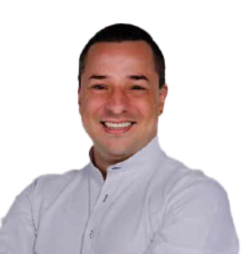
Carlos AndrĂŠs Toro
Universidad CatĂłlica Luis AmigĂł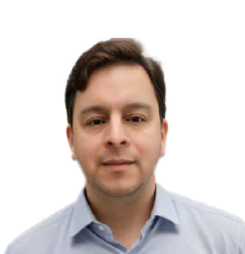
Juan SebastiĂĄn HernĂĄndez Valencia
Universidad CatĂłlica Luis AmigĂł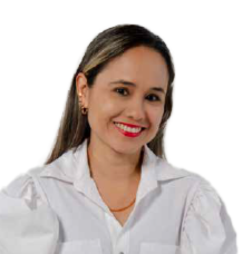
Adriana Maria Gallego Henao
Universidad CatĂłlica Luis AmigĂł
Manuel David GĂłmez Erazo
Universidad CatĂłlica Luis AmigĂł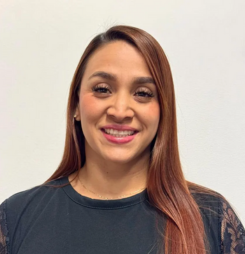
Yully Marcela VĂĄsquez Ortega
Universidad CatĂłlica Luis AmigĂł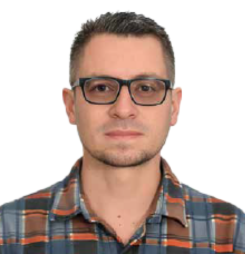
AdriĂĄn Alonso Arcila Parra
Universidad CatĂłlica Luis AmigĂł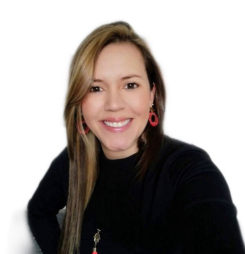
Gloria Stefany Moreno Soto
Universidad CatĂłlica Luis AmigĂł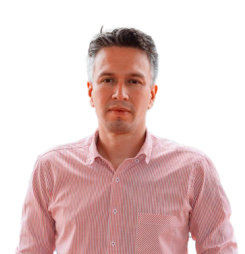
David Zuluaga Mesa
Universidad CatĂłlica Luis AmigĂł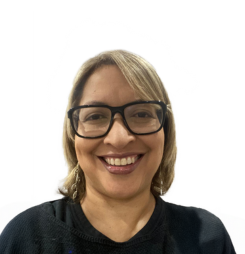
Diana Marcela Jaramillo
Universidad CatĂłlica Luis AmigĂł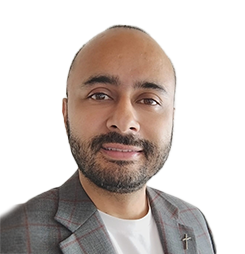
Arles Humberto RĂos Serna
Uniminuto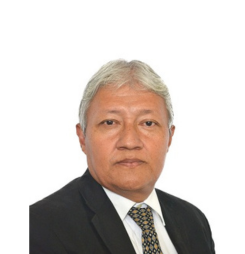
Carlos Mario Ortega Rojas
Uniminuto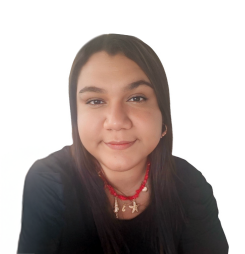
Maira Alejandra PulgarĂn
Uniminuto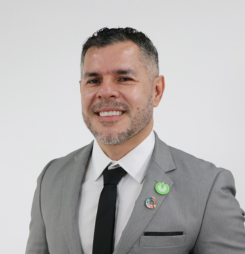
Dayro LeĂłn Quintero LĂłpez
Universidad de AntioquĂa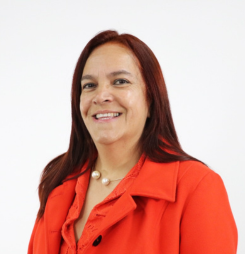
Bibiana Cuervo Montoya
Universidad de AntioquĂa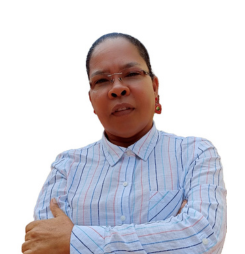
Julia Victoria Escobar LondoĂąo
UNILASALLISTA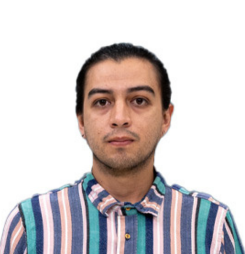
Esteban Zapata Trejos
IU Digital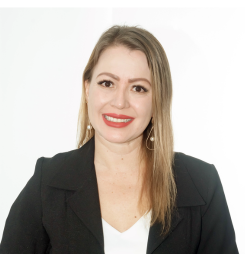
Sandra Juliet Clavijo Zapata
IU Digital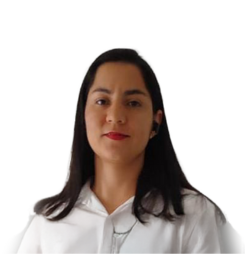
Yaneth FernĂĄndez PeĂąa
IU Digital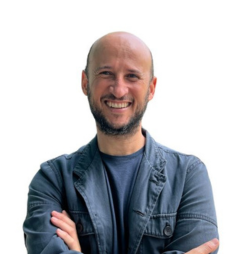
AdriĂĄn MarĂn EchavarrĂa
Colegio San JosĂŠ de las Vegas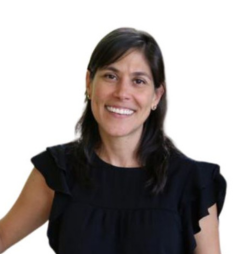
MarĂa Paulina Arango FernĂĄndez
Colegio San JosĂŠ de las Vegas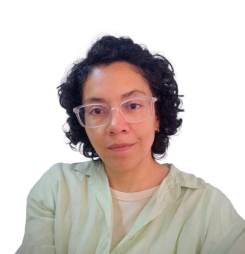
Lina Marcela Cadavid Ramirez
Universidad CatĂłlica de Oriente UCO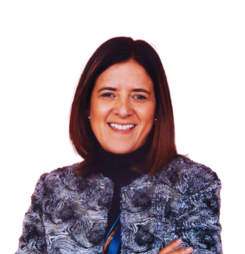
Maria Fernanda GonzĂĄlez Velasco
ASCOFADE
Congress Program
The congress will be held from September 25 to 27, 2025, at Universidad CatĂłlica Luis AmigĂł.
Date |
Time |
Activity |
September 25, 2025 |
8:00 a.m. |
Opening Ceremony |
9:00 a.m. |
Keynote Speaker |
|
10:00 a.m. |
Break |
|
10:30 a.m. |
Panels (Satellite Presentations) |
|
12:00 p.m. |
Break |
|
September 26, 2025 |
9:00 a.m. |
Keynote Speaker |
10:00 a.m. |
Break |
|
10:30 a.m. |
Panels (Satellite Presentations) |
|
12:00 p.m. |
Break |
|
September 27, 2025 |
8:00 a.m. |
Keynote Speaker |
9:00 a.m. |
Panels (Satellite Presentations) |
|
10:00 a.m. |
Break |
|
11:00 a.m. |
Cultural Program |
|
3:00 p.m. |
Closing Ceremony |
Academic Events Program
VII Colloquium of the Colombian Network of Doctorates in Education and Related Fields
RECODE - Nodo Antioquia - Eje Cafetero
Date: September 19, 2025
Time: 8:00 a.m. to 5:00 p.m.
More information here
Research School Program
Date |
Time |
Activity |
September 20, 2025 |
8:00 a.m. - 5:00 p.m. |
Research School Activities |
September 22, 2025 |
8:00 a.m. - 5:00 p.m. |
Research School Activities |
September 23, 2025 |
8:00 a.m. - 5:00 p.m. |
Research School Activities |
September 24, 2025 |
8:00 a.m. - 5:00 p.m. |
Research School Activities |
Attachments |
||
|
||
- Maricel Mena LĂłpez
 PhD in Religious Studies from the Methodist University of SĂŁo Paulo and postdoctoral studies in feminist hermeneutics at the Higher School of Theology in SĂŁo Leopoldo, Brazil. She is a research professor at the Faculty of Theology at Universidad Santo TomĂĄs in BogotĂĄ and director of the Gustavo GutiĂŠrrez: Latin American Theology research group. Former Latin American coordinator for the gender program of the Ecumenical Association of Third World Theologians (EATWOT). A Colombian scholar from Cali, her work focuses on contextualized biblical and theological research, emerging Afro-feminist spiritualities and wisdoms, intercultural education, and gender identityâoffering a critical perspective on socio-religious and cultural issues. - Juan Carlos Amador Baquiro
 PhD in Education from Universidad Distrital Francisco JosĂŠ de Caldas and professor in its Faculty of Science and Education. His academic focus is on language and education, particularly communication and education in culture. A researcher in the Youth, Cultures and Powers group, he has participated in projects exploring the intersections of youth, communication, and society. His recent work includes visual memory of Colombia’s armed conflict and peace education. He is also a thesis advisor and actively involved in educational research initiatives. - Juan JosĂŠ Tamayo Acosta
 Renowned Spanish intellectual closely linked to Latin American theology. He holds a PhD in Theology from the Pontifical University of Salamanca and a PhD in Philosophy from the Autonomous University of Madrid. He is Professor Emeritus at Universidad Carlos III de Madrid, where he held the Ignacio EllacurĂa Chair in Theology and Religious Studies. Currently Secretary of the Juan XXIII Association of Theologians. He has been a visiting professor at various universities across Europe, the U.S., and Latin America. His works address interreligious dialogue, interculturality, and political studies. He is known for his commitment to a critical and liberating theology that resonates within the international academic community. - Alfredo Manuel Ghiso Cotos
 Master’s in Spanish and Literature from Universidad del Comahue, Argentina, and specialist in Social Development from St. Francis Xavier University. An Argentinian researcher based in Colombia with extensive experience in critical pedagogy and popular education. He has developed participatory methodologies that empower marginalized communities through education. He has worked with various NGOs and educational centers on inclusive and contextualized educational projects. His interdisciplinary approach combines sociology, anthropology, and pedagogy, promoting peace education, social justice, and human rights throughout Latin America.
The presentations will be reviewed by the event's scientific committee. Those that meet the quality standards will be published as book chapters in the collection.
Editorial Guidelines
Attachments
 Copyright Transfer
 Document regulating the transfer of copyright to the university.
Guidelines for Research and Outreach Chapters
 Specific guidelines for the writing and submission of scientific and outreach content.
Theme 1. Subjectivities, Critical Education, and Humanities: Approaches to Emancipation
 This axis explores the construction of subjectivities in contexts of exclusion and suffering, recognizing the marginalized as agents of change. It advocates for a critical and decolonial education that not only reveals the causes of oppression but also fosters social transformation through the recovery of silenced voices and the strengthening of liberating pedagogical practices.
Associated Lines:
- Subjectivities and decolonial education: critical thinking and spirituality in contexts of resistance
- Collective memory, popular education, and the construction of critical subjectivities
- Environmental education and social movements: ethics, the body, and transformative praxis
- Educational crisis and subjectivities: critical reflection on knowledge, power, and justice
Theme 2. Interculturality and Diversity: Pedagogical-Humanistic Dialogues for Recognition
Explores the challenges of interculturality and diversity as everyday realities to be understood through the lenses of history, culture, and justice. It promotes a critical vision that acknowledges the plurality of knowledge, languages, and spiritualities, encouraging transformative encounters among cultures, territories, and diverse subjects.
Associated Lines:
- Interculturality, neuroeducation, and inclusion: holistic knowledge for diversity
- Territorial diversity and intersectionality: reflections on justice and recognition
- Ethical-political dialogues in an intercultural key: paths toward social reconciliation
- Languages and language: pedagogies for the construction of intercultural identities
 Reflects on the role of critical pedagogies and humanities in building a more just future. Through inter- and transdisciplinary approaches
MedellĂn, September 20, 22, 23, and 24, 2025
Overview
As part of the International Congress on Critical Pedagogies and Humanities, the Faculty of Education and Humanities at Universidad CatĂłlica Luis AmigĂł presents the Research School, an academic space designed to strengthen the research skills of undergraduate and graduate students, as well as emerging researchers, through interdisciplinary dialogue and the collective construction of critical knowledge.
This School arises in response to contemporary social, political, and ecological challenges, recognizing the transformative role of education and critical humanities in confronting structures of power, inequality, and exclusion. Focusing on subjectivities, interculturality, and social transformation, the School seeks to train researchers committed to social justice, the production of situated knowledge, and ethical action.
Methodology
The School integrates three main training strategies:
- Keynote Lectures: Epistemic, methodological, and ethical-political coordinates to guide critical research.
- Expert Courses: Specialized training in theoretical frameworks, methodological strategies, and practical application in research projects.
- Co-creation Workshops: Collaborative spaces to design, problematize, and collectively disseminate knowledge in community.
Participation Process
Participation is open through a submission and selection process of research proposals, ensuring academic and geographical diversity. Attendance and active participation in all activities are required for final certification.
Registration (Fees and Process)
Universidad CatĂłlica Luis AmigĂł invites students, educators, researchers, and individuals interested in critical humanities and educational transformation to register for the Congress on Critical Pedagogies and Humanities.
Registration Steps
1. Access the registration system
 Visit the official event link to begin your registration process.
2. Fill out the registration form
 Click the “Register” button.
Enter your personal details (type of ID, number, date of birth), then click Continue.
You’ll be prompted to provide personal information, contact details, authorization, academic offer details, and select your fee category.
3. Select the appropriate fee based on your profile
 Make sure to choose the correct option according to your participant category. The available fees are:
Profile / Participation |
Fee (COP) |
General Public â Congress Registration + City Visit   |
$300.000 |
General Public â Congress Only |
$240.000 |
Organizing Universities â Congress Registration + City Visit  |
$210.000 |
Universidades organizadoras - InscripciĂłn a Congreso + visita de ciudad |
$190.000 |
Amigonian Community (students, graduates, staff, employees) â Full Pack |
$190.000 |
Students from Other Universities â Congress Only |
$150.000 |
Organizing Universities â Congress Only           |
$130.000 |
Amigonian Community â Congress Only  |
$130.000 |
Registration confirmation
Once completed, you will receive a confirmation email with additional instructions.
Important Dates:
Registration Opens: May 2, 2025
Registration Closes: August 18, 2025 â 11:59 PM
Event Date: September 24, 2025
|
|
